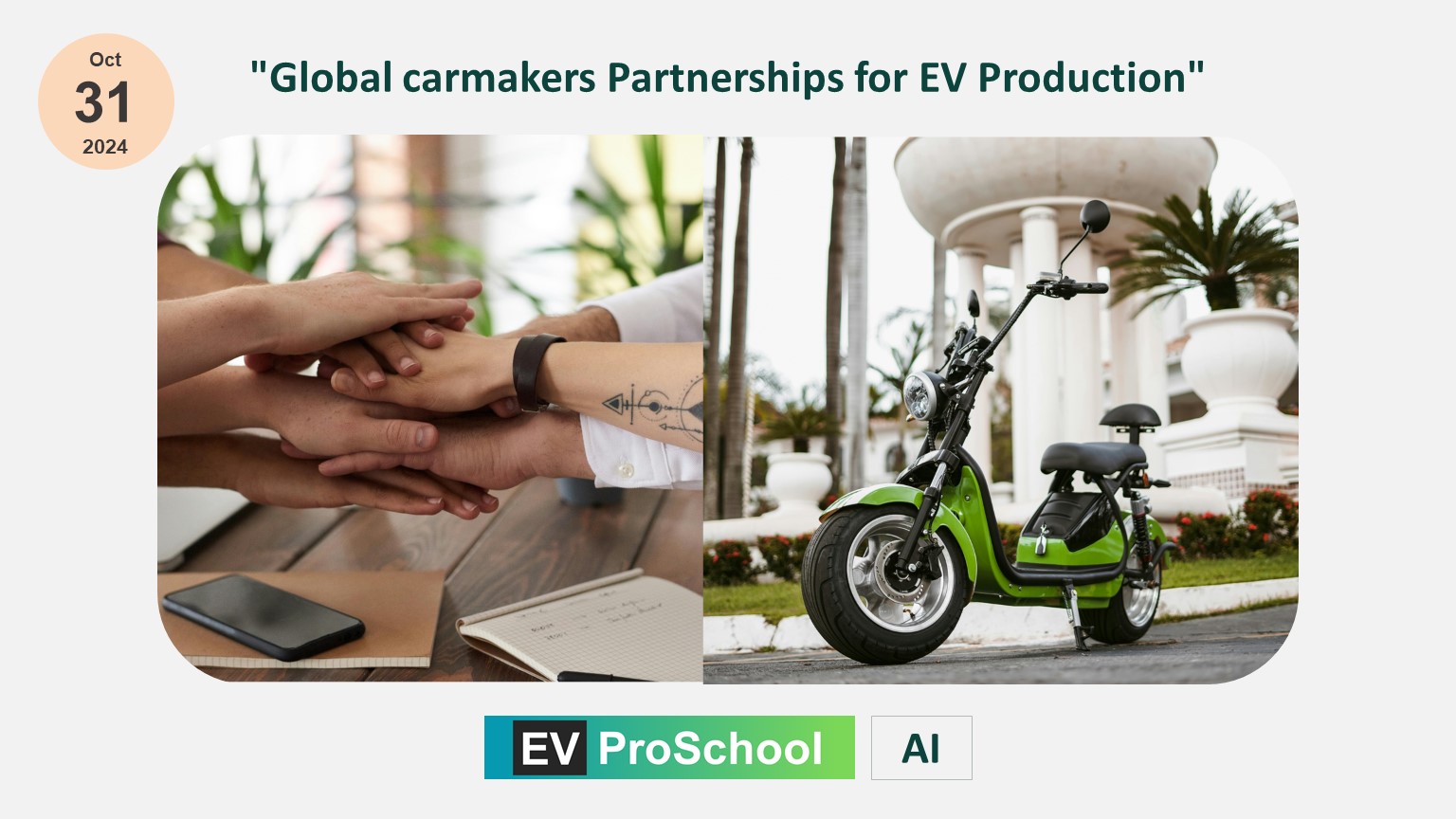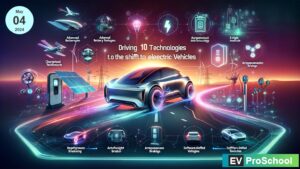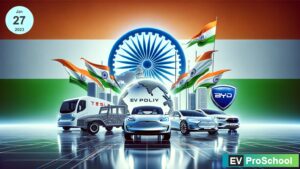India is emerging as one of the most promising markets for electric vehicles (EVs), and global carmakers are taking notice. As the country aims to transition toward green mobility, several international automotive giants are joining forces with Indian companies to accelerate EV production. These partnerships are creating new opportunities for technology exchange, local manufacturing, and innovation in the EV space. In this blog post, we explore the different kinds of collaborations that are shaping the future of EV production in India.
1. Joint Ventures for Local Manufacturing
One of the most common types of partnerships between global carmakers and Indian companies is the formation of joint ventures for local manufacturing. These collaborations allow international automakers to leverage India’s growing industrial base while meeting the government’s “Make in India” initiative.
- Suzuki Motor Corporation and Toyota: One of the notable partnerships in this space is between Japan’s Suzuki Motor Corporation and Toyota. The companies have a joint venture that focuses on producing EVs for the Indian market. Suzuki, through its subsidiary Maruti Suzuki, already has a strong presence in India, and this partnership allows them to tap into Toyota’s advanced EV technology, making it easier to develop cost-effective electric vehicles for Indian consumers.
- Hyundai and Tata Group: Hyundai, another major player in India’s automotive market, has partnered with Tata Power to set up a vast network of electric vehicle charging stations across India. The collaboration is aimed at developing charging infrastructure, a crucial element for EV adoption. This partnership not only promotes Hyundai’s EV lineup but also strengthens India’s charging network, enhancing the ecosystem for future EV production.
2. Technology Transfer and R&D Collaboration
Global carmakers are also entering technology transfer and research and development (R&D) partnerships with Indian companies to speed up the development of EVs and related components. These collaborations focus on building technological expertise in areas like battery production, electric drivetrains, and software integration for smart mobility.
- Mahindra & Ford: Mahindra, one of India’s leading automakers, previously entered into a strategic partnership with Ford to co-develop electric vehicles, including an electric SUV for the Indian market. Although the two companies later decided to re-evaluate their joint venture, this partnership demonstrated the potential of combining local market expertise with global EV technology. Mahindra benefited from Ford’s advanced EV technologies, while Ford gained access to Mahindra’s extensive knowledge of the Indian market and supply chains.
- Tata Motors and Jaguar Land Rover (JLR): Tata Motors, which owns the British luxury car brand Jaguar Land Rover, has benefited from shared R&D efforts in the EV sector. The two companies are working together on electric and hybrid vehicles, with Tata Motors incorporating some of the cutting-edge EV technology from JLR into its own product line. The collaboration has led to the launch of Tata’s Nexon EV, which is currently one of the best-selling electric cars in India.
3. Battery Production and Supply Chain Partnerships
Battery production is one of the most critical aspects of EV manufacturing, and many global carmakers are forming supply chain partnerships with Indian companies to secure locally produced lithium-ion batteries. These collaborations are focused on setting up battery plants, improving battery technology, and reducing dependency on imports.
- Ola Electric and South Korean Manufacturers: Ola Electric, a subsidiary of ride-hailing giant Ola, is collaborating with South Korean battery manufacturers to set up a large-scale lithium-ion cell production facility in India. The plant aims to develop battery packs for Ola’s electric scooters and future electric vehicles. This partnership is crucial because batteries account for a significant portion of an EV’s cost, and having a local supply chain reduces the overall production cost.
- Amara Raja and Johnson Controls: Indian battery maker Amara Raja has partnered with U.S.-based Johnson Controls to develop advanced battery technologies for electric vehicles. This partnership is centered on developing next-generation battery management systems that will enhance the performance and lifespan of batteries used in EVs. As the Indian EV market grows, such collaborations are essential to scaling battery production domestically.
4. Infrastructure Development Collaborations
EV adoption doesn’t just depend on vehicle production but also requires a robust infrastructure for charging and maintenance. Many global carmakers are partnering with Indian energy companies to build the charging infrastructure needed to support electric vehicles.
- Tata Power and Jaguar Land Rover: Tata Power has signed an agreement with Jaguar Land Rover to develop a charging network for JLR’s EV customers in India. The partnership will enable JLR customers to use Tata Power’s EV charging network at public locations, including highways, malls, and retail outlets. This collaboration not only promotes JLR’s EV models but also helps develop India’s overall EV infrastructure.
- Shell and Hyundai: Shell, a global energy company, is collaborating with Hyundai India to create a network of charging stations across the country. This partnership aims to install fast-charging stations at Shell petrol stations, ensuring that Hyundai EV owners have convenient access to charging facilities.
5. Green Energy Partnerships for Sustainable Production
As part of the global push toward sustainability, carmakers are also entering into green energy partnerships to ensure that their EV production processes are environmentally friendly. These collaborations often involve setting up renewable energy-powered manufacturing plants or sourcing renewable energy for their production facilities.
- MG Motors and CleanMax: British automaker MG Motors, which has a strong presence in India, has partnered with renewable energy provider CleanMax to power its EV production facilities using solar energy. The collaboration involves installing rooftop solar panels at MG’s production plants, significantly reducing the carbon footprint of its electric vehicle production process. This partnership highlights how global automakers are focusing on making not just their products but also their production methods more sustainable.
Conclusion
As India continues its journey towards electric mobility, global carmakers are forming diverse partnerships with Indian companies to tap into this growing market. From joint ventures for local manufacturing and technology transfers to supply chain collaborations and green energy initiatives, these partnerships are helping shape the future of EV production in India. These collaborations are not only boosting EV adoption but also building a robust ecosystem that supports sustainable and cost-effective electric mobility in the long run.



